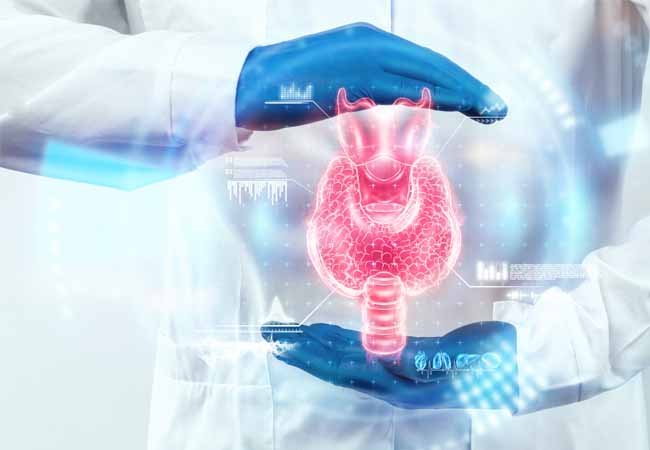- April 23, 2025
- Dr. Puneet Bhasin
Thyroid: Myths and Facts
The thyroid gland, a small butterfly-shaped organ located at the base of your neck, plays a crucial role in regulating your body’s metabolism, energy production, and hormonal balance. However, despite its importance, thyroid disorders remain surrounded by myths and misconceptions, often leading to confusion, misdiagnosis, or delay in treatment.
As a Senior Consultant Physician and Critical Care Specialist at Jaswant Rai Speciality Hospital, Dr. Puneet Bhasin brings clarity and evidence-based insights to debunk common myths and provide factual information about thyroid health.
Myth 1: Thyroid problems are rare
Fact: Thyroid disorders are among the most common endocrine problems worldwide. In India, millions suffer from hypothyroidism, hyperthyroidism, thyroid nodules, or autoimmune thyroid diseases like Hashimoto’s thyroiditis and Graves’ disease. Many people are unaware of their condition due to vague or subtle symptoms.
Myth 2: Only women get thyroid disorders
Fact: While it’s true that women are more prone to thyroid issues—especially during pregnancy, after childbirth, or menopause—men can also suffer from thyroid dysfunction. Thyroid screening should not be limited by gender.
Myth 3: Thyroid diseases always show clear symptoms
Fact: Thyroid disorders often present with subtle, non-specific symptoms such as fatigue, weight changes, hair loss, or mood swings. These signs are easily mistaken for other conditions or ignored altogether. A simple blood test (TSH, T3, T4) can help diagnose the issue early.
Myth 4: Iodized salt is enough to keep my thyroid healthy
Fact: While iodine is essential for thyroid hormone production, iodized salt alone may not be sufficient for people with underlying thyroid disorders. In some autoimmune thyroid conditions, excess iodine can even be harmful. Always consult your doctor before taking iodine supplements.
Myth 5: You must stop thyroid medicine once symptoms improve
Fact: Thyroid medications, especially for hypothyroidism, are typically lifelong. Stopping them without medical guidance can lead to symptom recurrence and serious complications. Dr. Puneet Bhasin emphasizes that thyroid treatment is based on regular monitoring and long-term management.
Myth 6: Diet alone can cure thyroid disorders
Fact: While a balanced diet can support thyroid health, it cannot replace medications for diagnosed thyroid conditions. Avoiding goitrogens like soy, cabbage, or broccoli may help in some cases, but dietary changes should always be part of a holistic treatment plan supervised by a physician.
Myth 7: Weight gain means you have thyroid problems
Fact: Unexplained weight gain can be a symptom of hypothyroidism, but it’s not the only cause. Sedentary lifestyle, poor eating habits, and other hormonal imbalances can also lead to weight gain. A proper evaluation is necessary to find the root cause.
When to See a Doctor
If you experience symptoms like chronic fatigue, dry skin, depression, sensitivity to cold or heat, irregular periods, or unexplained weight changes, you should consult a physician. Early diagnosis and treatment can prevent long-term complications.
Consult Dr. Puneet Bhasin in Meerut
With over 27 years of experience in internal medicine and critical care, Dr. Puneet Bhasin offers expert evaluation and treatment for thyroid disorders. At Jaswant Rai Speciality Hospital, he combines patient-centric care with the latest diagnostic techniques to ensure accurate diagnosis and effective management of thyroid conditions.
Book a consultation with the best physician in Meerut to understand your thyroid health better and take control of your well-being with personalized medical care.



